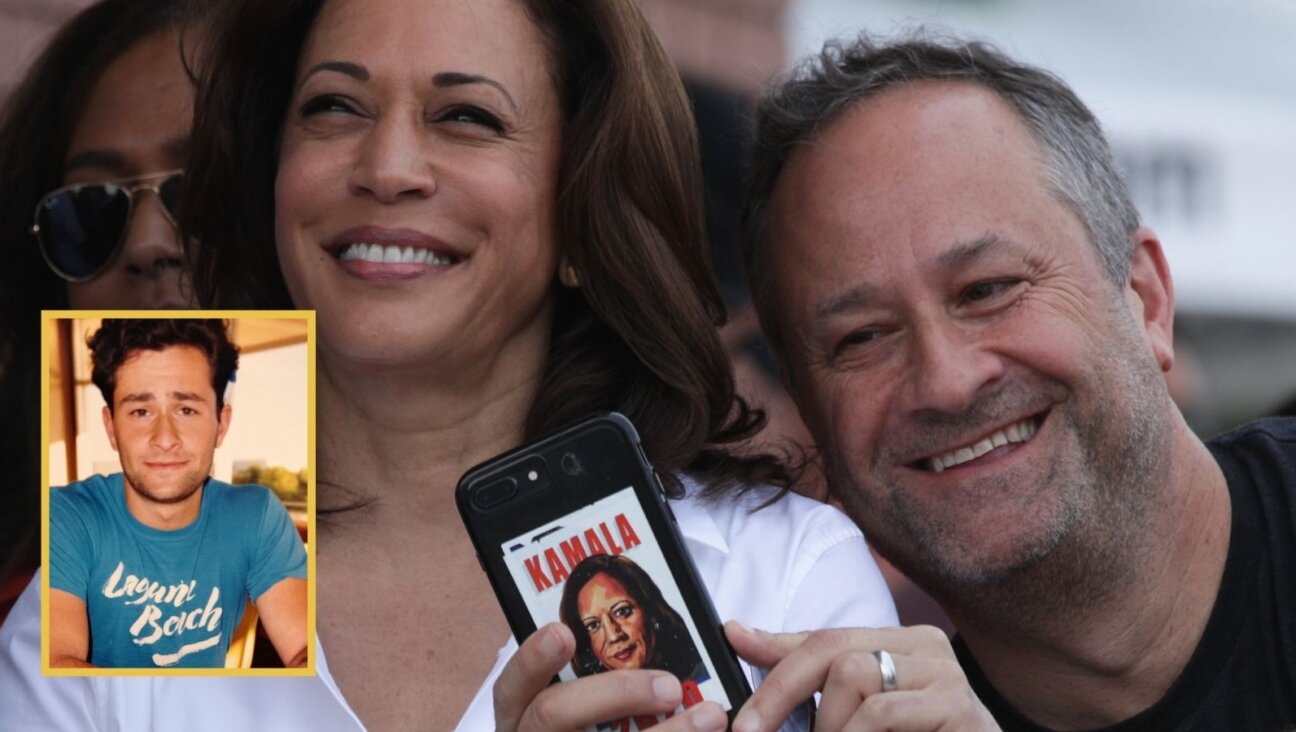Henry Kissinger: ‘If it were not for the accident of my birth, I would be antisemitic.’
The former secretary of state was remarkable for his longevity — his policy record was another matter

Henry Kissinger By Getty Images
Editor’s Note: This story about Henry Kissinger, who has died at the age of 100, was originally published on May 27, 2023 on the occasion of his 100th birthday.
How readers may choose to commemorate the birthday of Henry Kissinger, who turns 100 on May 27, may well depend on their previous readings about the former Secretary of State and National Security adviser.
Those who appreciated Niall Ferguson’s hagiographical two-volume biography will applaud Kissinger’s role as the first Jewish secretary of state and his success in helping to achieve détente with Communist China and the Soviet Union.
By contrast, political writers Seymour Hersh and especially Christopher Hitchens have pointed to a series of alleged war crimes by Kissinger in Vietnam, Bangladesh, Chile, Cyprus and East Timor marked by decisions made with apparent blithe unconcern for human suffering and loss of life.
Law experts insist there is scant chance that Kissinger will ever be tried as a war criminal, although some of his close political associates, including the Chilean dictator General Augusto Pinochet, did undergo that experience. Kissinger’s policies were, after all, concocted in the White House, and the historic legal immunity of that building for myriad crimes has become familiar to Americans over the past four years.
Even authors whose viewpoints are somewhere between the two extremes, from Walter Isaacson to Gil Troy, have presented troubling accounts of how Heinz Kissinger, born in Fürth, Germany, ruthlessly achieved worldwide fame and fortune.
The family name was originally Löb, revamped by Kissinger’s great-great-grandfather Meyer, who aspired to the glamor associated with the Bavarian spa town of Bad Kissingen.
Comparably, Kissinger’s career may be seen as an exercise in ambitious self-creation, behind which little can be identified as genuine. His near-century is epitomized by a TV commercial broadcast in November 2001, filmed to lure tourists back to Manhattan after the Sept. 11 attacks.
The ad showed a body double for Kissinger rounding the bases of Yankee Stadium and belly flopping into home plate. A close-up is shown of Kissinger brushing dirt off his suit.
Everything about this commercial is phony, possibly even including his celebrated exotic accent. Biographers have noted that Kissinger’s brother Walter, his junior by one year, emigrated to America with the rest of the family in 1938 and since then, speaks in accent-less standard American speech. Kissinger opted for an imposing otherness by retaining his foreign speech patterns.
While accepting honors from Jewish organizations, Kissinger has also behaved and spoken in ways that estranged some of his fellow Jews.
In 1985, he publicly supported President Ronald Reagan’s wreath-laying ceremony at a military cemetery in Bitburg, West Germany where members of the Waffen-SS are buried. Kissinger opposed the idea of a United States Holocaust Memorial Museum, because such an institution next to the National Mall in Washington, D.C., might create “too high a profile” for American Jews and “reignite antisemitism.”
Among his statements, one from March 1973 caused a stir when it was published in 2010. Taped in conversation with Richard Nixon soon after a meeting with Israeli Prime Minister Golda Meir, Kissinger disdained the notion of pressuring the USSR about persecuted Soviet Jews, saying: “The emigration of Jews from the Soviet Union is not an objective of American foreign policy, and if they put Jews into gas chambers in the Soviet Union, it is not an American concern. Maybe a humanitarian concern.”
In 2011, hitherto secret U.S. State Department documents from late 1972 were likewise published, revealing that Kissinger was irked by the concern expressed by American Jews about the fate of Soviet Jewry, calling the former “self-serving…bastards.”
Walter Isaacson explains that at a contemporaneous meeting of the Washington Special Actions Group, a government crisis task force, Kissinger grumbled, “If it were not for the accident of my birth, I would be antisemitic.” He added: “Any people who has been persecuted for two thousand years must be doing something wrong.”
During a Vietnam War-era chat from October 1973 with Brent Scowcroft, Deputy Assistant to the President for National Security Affairs, Kissinger found American Jews and Israelis “as obnoxious as the Vietnamese.”
In another transcribed telephone conversation from November 1973, Kissinger declared: “I’m going to be the first Jew accused of antisemitism.” This sally reflects obliviousness to the longstanding concept of Jewish self-hatred described by cultural historian Sander Gilman and analyzed in Theodor Herzl’s “The Jewish State” (1896).
Kissinger also mocked those who defended Jews, especially Israelis. One such target was presidential adviser Daniel Patrick Moynihan, whose pro-Israel stance evoked this comment from Kissinger: “We are conducting foreign policy. … This is not a synagogue.”
Kissinger further inquired derisively if the Irish-Catholic Moynihan wished to convert to Judaism. These and other wisecracks led some observers, like Yeshiva University’s Rabbi Norman Lamm to disavow Kissinger as early as December 1975.
Noting that one of Kissinger’s first actions as Secretary of State was to revoke the standard procedure allowing Jewish State Department employees holidays on Rosh Hashanah and Yom Kippur, Rabbi Lamm cited other instances where Kissinger failed to commemorate or even mention the Holocaust:
“Let us openly disassociate from [Kissinger]. He wants not to be a part of our people — its history and its destiny, its suffering and its joys. So be it. Let us never again, in our talk or in our publications, make reference to this man’s Jewishness. And let us insist that he be done with his occasional shrewd remarks to the press or to diplomats that, of course, he would not jeopardize the lives of Jews or other oppressed peoples because he too is a refugee from oppression. A man who ‘forgets’ millions of his fellow sufferers, has lost the moral right to make use of their suffering and his own refugee status in furthering his own ends… Our Kavod (honor) ultimately will be better served if Henry Kissinger will succeed in severing whatever frail and residual bonds still tie him to the House of Jacob and the Children of Israel. Let us grant him his obvious wish to be dis-united with us.”
More acceptingly, historian Gil Troy depicted Kissinger as a “conflicted” Jew and “German intellectual,” although his scholarly bona fides were questioned at Harvard, where Kissinger’s verbose senior undergraduate thesis contained over 400 pages, leading the university to set word limits for all future student efforts.
Troy also likened Kissinger to literary precedents including Sammy Glick, a Lower East Side striver in Budd Schulberg’s novel “What Makes Sammy Run?” and Alexander Portnoy, the antihero of Philip Roth’s “Portnoy’s Complaint.” Troy even called Kissinger “Gatsbyesque,” alluding to the nouveau riche protagonist of F. Scott Fitzgerald’s “The Great Gatsby.”
Yet ultimately, the closest bookish parallel may be with the 19th century Anglo-Irish statesman Lord Castlereagh, a subject of Kissinger’s doctoral thesis.
Hated for his attacks on liberty and reform, Castlereagh inspired the following lines in P.B. Shelley’s poem “The Masque of Anarchy,” evoking the carnage resulting from political rhetoric:
“I met Murder on the way –/ He had a mask like Castlereagh –/ Very smooth he looked, yet grim;/ Seven bloodhounds followed him… For one by one, and two by two,/ He tossed them human hearts to chew/ Which from his wide cloak he drew.”
As he approaches his century with no remorse or reckoning for any possible human rights offenses, Kissinger’s legacy in Jewish matters retains the aura of Shelley’s bloodhounds and human hearts.






















